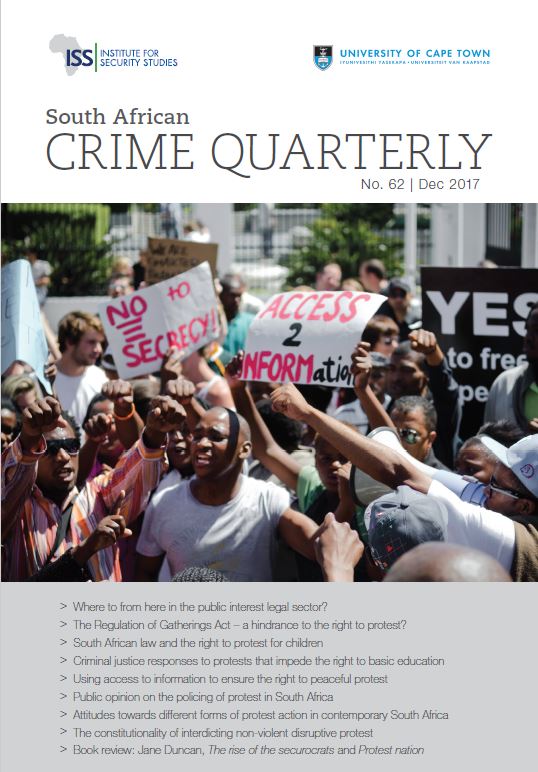#Schools on fire: Criminal justice responses to protests that impede the right to basic education
DOI:
https://doi.org/10.17159/2413-3108/2017/i62a3090Abstract
In recent years, schools have borne the brunt of protesters’ frustrations with the lack of access to services in South Africa. A 2016 investigative hearing by the South African Human Rights Commission (SAHRC) explored the causes of the protests and examined the failure to prevent the destruction of school property. It found that no one was held accountable for the protest-related damage. This article explores the competing constitutionally protected rights of protest and education. Although the right to protest is central in a democracy, it must be exercised peacefully with minimal disruptions to the right to education. Protest action that causes destruction should be criminally sanctioned; however, action that impedes access to education through threats and intimidation is difficult to deal with in the criminal justice system. This article questions the applicability of section 3(6) of the South African Schools Act, which makes it an offence to stop children attending school, and considers the proposed amendments to the Act in light of these critiques. The article explores possible prosecution relying on the Intimidation Act, and finds that the Act is under constitutional challenge. The article concludes that the focus on prevention as contained in the SAHRC report is not misplaced, given the challenges in holding protesters accountable under criminal law.
Downloads
Downloads
Published
Issue
Section
License
Copyright (c) 2017 Author and Institute for Security Studies

This work is licensed under a Creative Commons Attribution 4.0 International License.
SACQ is licenced under a creative commons licence (CC BY) that allows others to distribute, remix, tweak, and build upon your work, even commercially, as long a they give appropriate credit, provide a link to the license, and indicate if changes were made. They may do so in any reasonable manner, but not in any way that suggests the licensor endorses you or your use.
Copyright for articles published is vested equally between the author/s, the Institute for Security Studies and the Centre of Criminology (UCT).



.png)